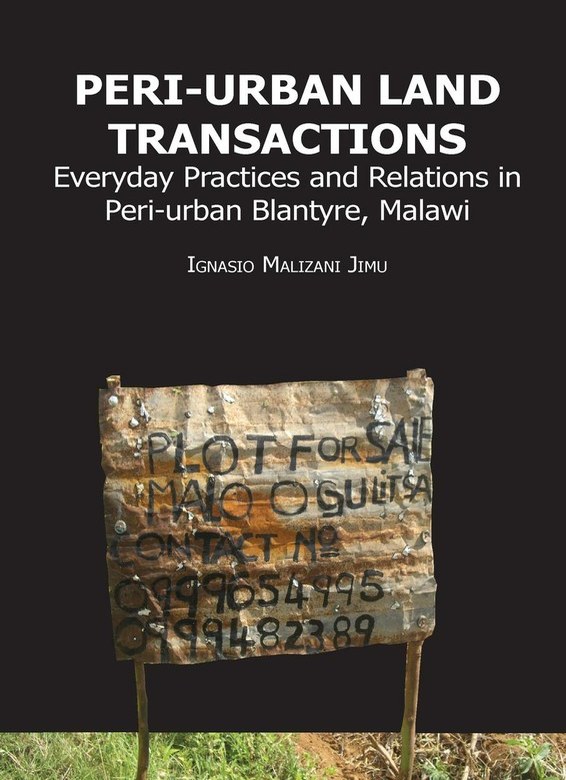written by Ignasio Malizani Jimu
Everyday Practices and Relations in Peri-urban Blantyre, Malawi
This book explores the changing land relations in the peri-urban villages of Blantyre in Malawi. It questions and debates how and why the peri-urban villages have become the locus of the selling and buying of customary land, the practices and also the relations involved. The book provides rich ethnographic insights on the commodification of land relations, custom, practices, disputes and social relations between land sellers, land buyers, traditional leaders, and intermediaries. The transactions draw strength from the growing peri-urbanization and monetization of social relations, both of which push towards land decisions at family and individual levels. Bigger groups like the village, clan or extended family have minimal, if not symbolic role only. Village headmen benefit materially by taking gifts (signing fee) rationalized by custom on reciprocity, while estate agents claim commission. Numerous constraints are negotiated about the ownership, rights to sale, multiple selling and the use and sharing of land money. Peri-urban land transactions offer scope for examining a wider range of social and economic relations, and the subtle ways in which the state infiltrates the everyday lives of actors. Overtime, the practices reproduce but also transform land relations in significant but less appreciated ways.
| ISBN | 9789956727599 |
| Pages | 422 |
| Dimensions | 229 x 152 mm |
| Illustrations | B/W Illustrations |
| Published | 2012 |
| Publisher | Langaa RPCIG, Cameroon |
| Format | Paperback |





2 comments
“Jimu’s focus on the everyday life of the social actors involved in the buying and selling of land brings out in ethnographic detail, complexity, and nuance, the arena within which land as social reality is constructed as meaningful experience. The study challenges conventional ideas of value in studies of customary land in Africa… Symbols of legitimation and uneasy articulation of tradition and modernity are a key dimension of this study.”
Francis B. Nyamnjoh, Professor of Social Anthropology, University of Cape Town, South Africa
“A theme that draws throughout the entire thesis is the commodification of land, which simultaneously creates opportunities for some actors and disadvantages for others. Related to that is a thorough and convincing questioning of conventional conceptualizations, in particular the usual dichotomy of urban versus rural. Jimu’s understanding of land transactions as a practice that produces its own social space and creates its own normativity is certainly a challenge to more conventional interpretations.”
Professor Till Förster, Institute of Social Anthropology, University of Basel, Switzerland